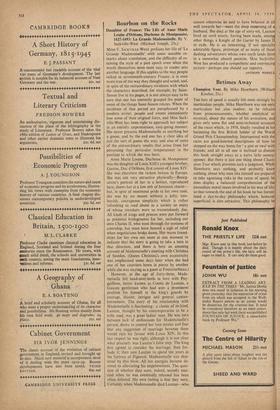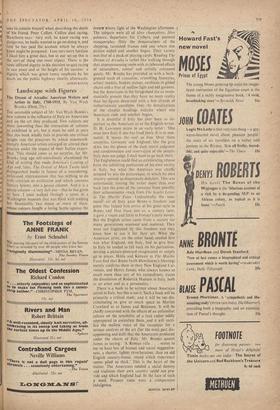Betimes Away
THE lure of speed is usually felt most strongly by inarticulate people. Mike Hawthorn was not only inarticulate but also modest; so he refrains from pronouncements, whether analytical or mystical, about the nature of his avocation, and gives only some flat and semi-technical accounts. of the races which, in 1958, finally resulted in his becoming the first British holder of the World Grand Prix Championship. Interspersed with the races are good-hearted descriptions of how he stopped on the way home for' a pint or two' with friends; and all in all one is inclined to dismiss this book straight away as a naive little money- spinner. But there is just one thing about Cham- pion Year which prevents such a judgment. While Hawthorn says nothing, and probably knew nothing, about why men like himself are prepared to take agonising risks in the cause of speed, he does display a balanced comprehension of the immediate moral issues involved in his way of life; so that towards the end of his book he has formu- lated a day-to-day philosophy which, however superficial, is also attractive. This philosophy he uses to console himself when describing the death of his friend, Peter Collins. -Collins died racing, Hawthorn says: very well, he knew racing was dangerous, he badly wanted to go on doing it, and now he has paid the account which he always knew might be presented: I am very sorry becanse I liked him a great deal, but in our set-up this is the sort of thing one must expect. There is the same offhand dignity in his decision to quit racing in one piece and at the height of his success a dignity which was given ironic emphasis by his death on the public highway shortly afterwards. • st MON RAVEN















































 Previous page
Previous page